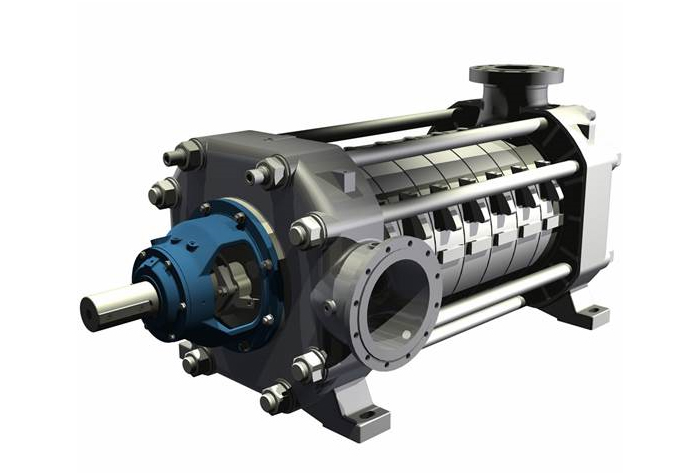Industrial pumps are an essential component of a society’s infrastructure that helps tremendously
This Article Includes
- Different Applications of Industrial Pumps
Industrial pumps are an essential component of a society’s infrastructure that helps tremendously with a wide array of issues in day to day life, allowing modern conveniences and streamlined production of economic goods. Although essential and present in almost all industries, many people who are not working out in the field simply don’t know what an industrial pump looks like and how it operates. Pumps make contemporary life possible by constantly working behind the scenes to keep the world moving. Incredibly, pumps account for an estimated 10% of the world’s power consumption, which goes to show just how prevalent they are.
To understand pumps and how they work, you first must know what pumps actually do. Let’s start with the definition of a pump: a device/machine that moves a fluid(liquid or gas) through mechanical action. So basically, a pump is a device that moves liquid from one point to another.
Pumps fall into two categories, non-positive-displacement pumps, and positive-displacement pumps. All pumps in these two categories use different mechanical actions to do the job but the general idea that one should remember is that pumps do not generate pressure. Pumps produce the necessary flow, or movement of fluids, for the system to develop pressure due to the resistance to flow in the system. The pressure will increase to the point that it will overcome the necessary resistance to the flow in the system.
Below is a list of some of the most common industries and applications that pumps can be found.

Industrial: Industrial pump use covers a wide variety of different applications. The application can range from water treatment, mining, paper mills, carwashes, dredging, waste removal, and many more depending on the application. Another note to add is without pumps, the separation of raw materials from tailings and overburden would be a time-intensive and costly process without the help of pumps.
Chemical: The chemical industry has the greatest demand for pumps. This industry produces large amounts of effluent, which are chemicals that are toxic, flammable, and/or explosive. Pumps also serve the purpose of providing protection to employees and the work environment by pumping out toxic waste/chemicals to intended disposal areas or waste treatment plants. The typical chemical plant has more pumps than employees, so for every 4 employees, there are 5 pumps!
Military: The utilization of pumps is critical for military bases and ships to operate adequately. High abrasive pumps are needed for naval ships to move coolants, keep heat regulated, pump wastewater, air conditioning, etc. The same can be said for on-land military bases.
Glycol Feed: Widespread manufactured products such as plastic require the production of polymers. Pumps are used in this process for glycol feeding as they ensure consistent pressure and control throughout these closed-loop systems.
Oil & Gas: From excavation, mining, production, refining, and transportation; pumps are able to handle these incredibly harsh conditions to ensure an efficient process upstream to downstream. Pumps are also utilized for the separation process when processing oil & gas, to effectively extract the products desired.
Agriculture: Globalization is healthy for the global economy as it encourages business competition that can lead to improved products, more competitive prices, and innovations. This results in the agriculture industry to utilize pumps for controlled, efficient processes for commodity processing, dairy processing, production of aquaculture, waste management, etc.
Food & Beverage: The food & beverage industry relies on pump efficiency, as well as the overall hygiene of the pumping system. The food & beverage industry would not be nearly as productive today without the help of pumps such as maple syrup filtrations, brine injection, food preservation, and of course clean water for use in food processing.
General Purpose: Pumps make modern life possible from residential use such as pumping heat(heated fluids) in a person’s home’s pipes, pumping water to be used for washing, cooking, drinking, and draining.
To summarize, pumps have definitely stood the test of time as they are a product still heavily used today in many applications that range from residential, commercial, and industrial. As the population around the world continues to climb, the usage of pumps will naturally increase. Today, pumps account for about 10% of the world’s total power consumption, a percentage that will likely rise over time. Innovation in energy consumption and overall efficiency for pumps continues to improve as the demand increases year by year.
Contact us today for a consultation to match the most efficient pump for your job.
